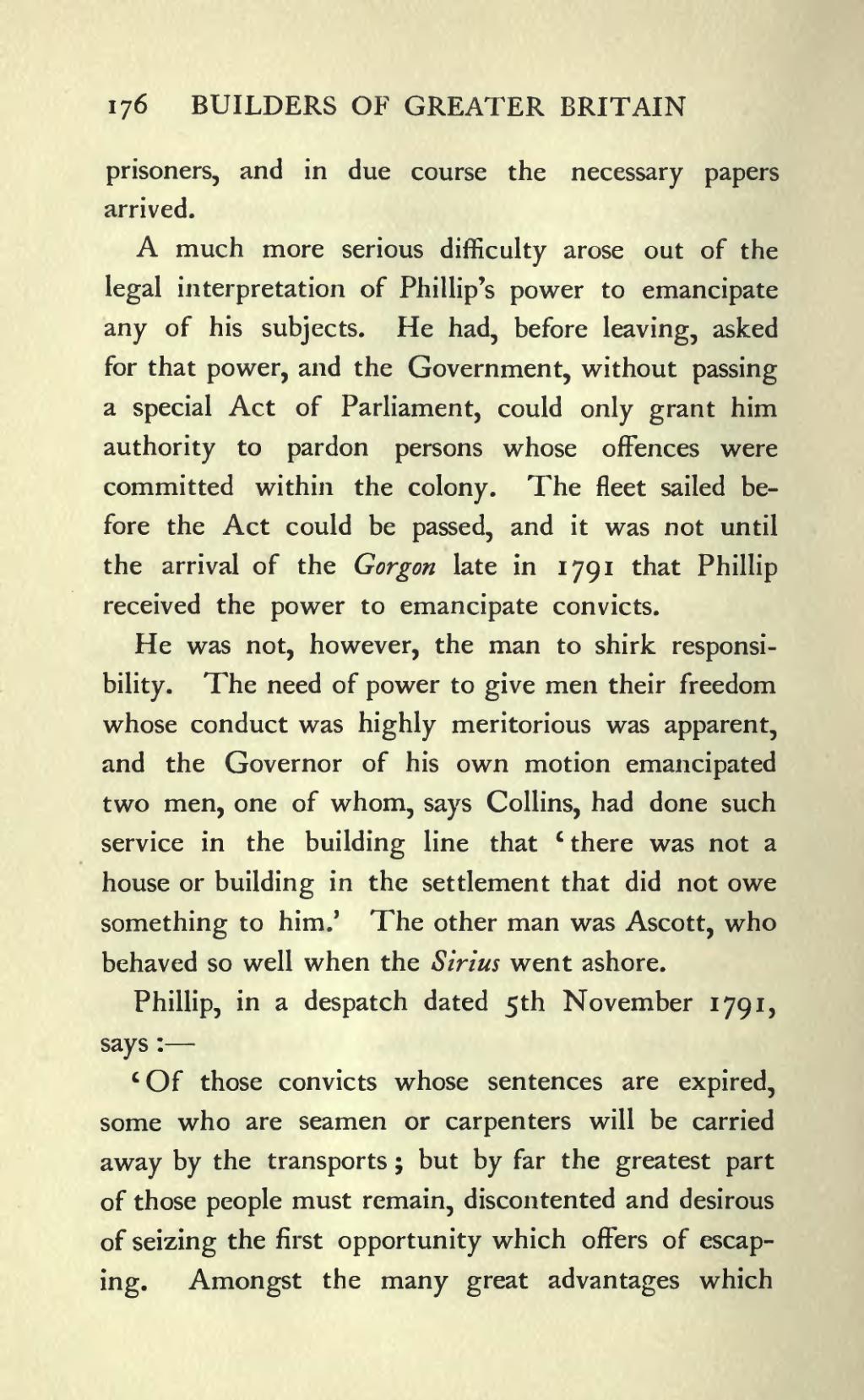prisoners, and in due course the necessary papers arrived.
A much more serious difficulty arose out of the legal interpretation of Phillip's power to emancipate any of his subjects. He had, before leaving, asked for that power, and the Government, without passing a special Act of Parliament, could only grant him authority to pardon persons whose offences were committed within the colony. The fleet sailed before the Act could be passed, and it was not until the arrival of the Gorgon late in 1791 that Phillip received the power to emancipate convicts.
He was not, however, the man to shirk responsibility. The need of power to give men their freedom whose conduct was highly meritorious was apparent, and the Governor of his own motion emancipated two men, one of whom, says Collins, had done such service in the building line that 'there was not a house or building in the settlement that did not owe something to him.' The other man was Ascott, who behaved so well when the Sirius went ashore.
Phillip, in a despatch dated 5th November 1791, says:—
'Of those convicts whose sentences are expired, some who are seamen or carpenters will be carried away by the transports; but by far the greatest part of those people must remain, discontented and desirous of seizing the first opportunity which offers of escaping. Amongst the many great advantages which

